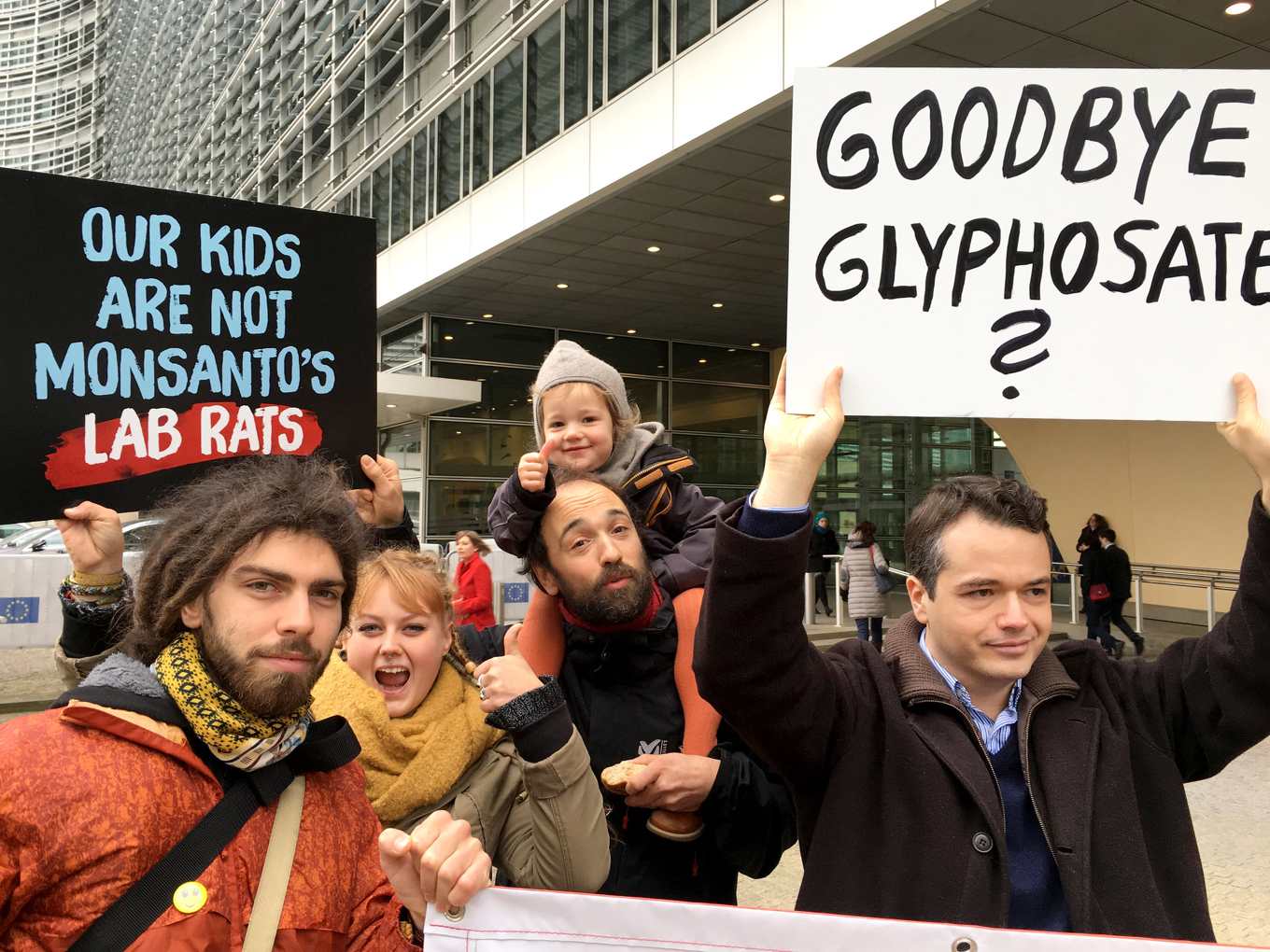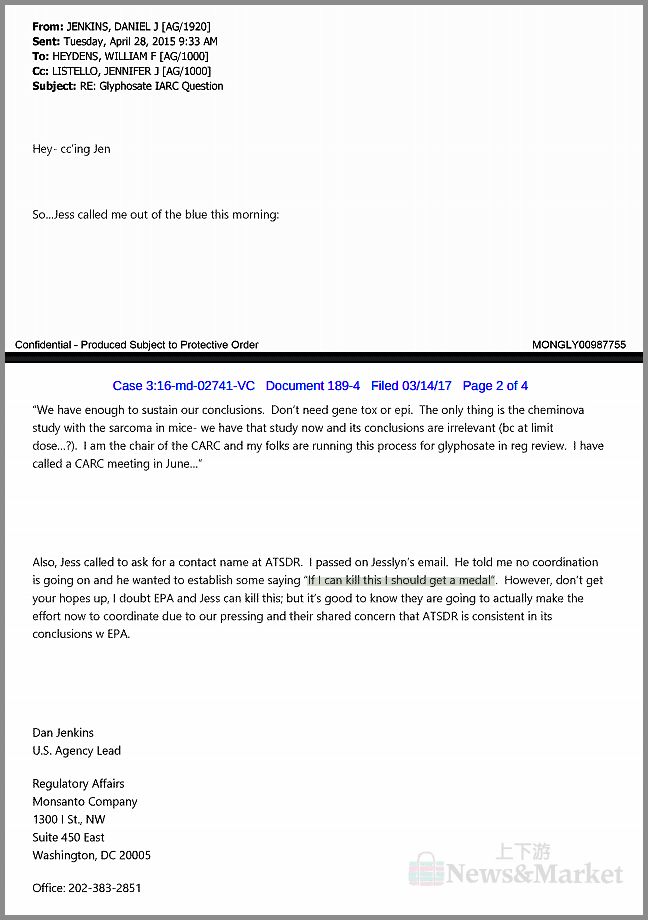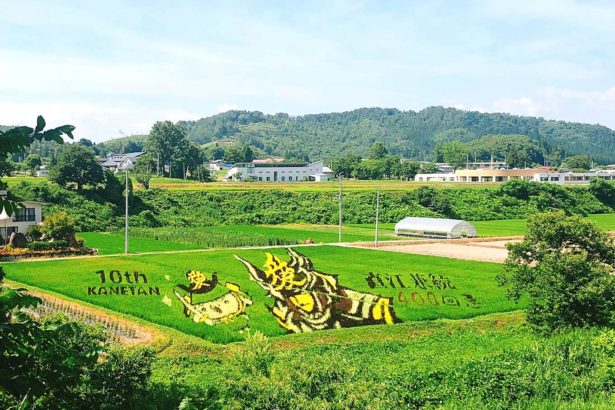The cancer risk report of Jiaposai has been exposed! Monsanto has been under pressure for four years, and the black hole finally shows its dawn every spring.
ShareTweetPocketEmail0 Shares
Under the pressure of Monsanto, the Gaposet risk Assessment report of the US Poison and Disease Registry was almost stillborn. It was not until more than 11000 non-Hodgkin's lymphoma patients and their families in the United States filed a complaint that Monsanto and Bayer suffered a series of defeats in court, and the Science, Space and Technology Committee of the US House of Representatives sent a letter to the Poisons and Disease Registration Board on March 29 this year to request a public report.
After four years of dust, the report finally revealed that glyphosate, the main ingredient of Roundup, the world's most widely used herbicide, is at risk of cancer and other health hazards, including affecting blood, liver, kidney and reproductive system functions.
According to Taiwan's National Health Department, the non-Hodgkin's Lymphoma Mortality (non-Hodgkin lymphoma) ranked ninth among men and 10th among women in 2016. In that year, 2474 people were diagnosed with non-Hodgkin's lymphoid tumors for the first time, accounting for 72.21% of malignant lymphomas, while 1171 people died of non-Hodgkin's lymphatic tumors that year. When the black hole in the United States shows a ray of light every spring, the truth of Taiwan's Jiaposai is still in the deepest and darkest corner.


Officials of the Environmental Protection Agency of the United States took credit from Monsanto. The content of the letter: if I can kill this report, I deserve a medal. (photo source; Monsanto documents released by the court)
More than 10,000 family members of cancer patients sued Monsanto, and the report came to light.
As Monsanto wanted, the Environmental Protection Agency, on the grounds that it was already reviewing Galiplast, discouraged the Toxicology and Disease Registry from wasting the federal budget to repeat the review and put aside its assessment report.
The Environmental Protection Agency (EPA) released a report in 2017, pointing out that Gypsy is unlikely to cause cancer in humans, while the Toxicology and Disease Registry's report is locked in dark filing cabinets.
It was not until more than 11000 non-Hodgkin's lymphoma patients and their families in the United States filed a complaint that Monsanto and Bayer suffered a series of defeats in the first two lawsuits, and the U.S. House of Representatives Committee on Science, Space and Technology sent a letter to the Poison and Disease Registry on March 29th to request a public report, and the report that was almost stillborn was revealed.
Kaposi was banned in Vietnam on April 11, and Taiwan's non-Hodgkin's lymphoma ranked among the top 10 in terms of mortality.
The problem with garnet is not just for the United States, because it is the most widely used herbicide ingredient in the world. Agent orange agent, a defoliant made by Monsanto, made great contributions to the United States and left ecological havoc in the jungle war of the Vietnam War. Having experienced the dark side of Monsanto, Vietnam's Ministry of Agriculture, after reviewing many scientific research and court data, said on April 11 this year that it would ban Gaposet because of the hazards to the environment and health.
Although Taiwan forbids the cultivation of genetically modified crops, the amount of herbicides used is among the highest in the world, and the amount of herbicide used per unit area even exceeds that of Brazil, a major reformist country. However, independent research on cancer caused by Jiaposai in Taiwan is obviously insufficient.
According to Taiwan's National Health Department, the incidence of non-Hodgkin's lymphoma ranked 11th in men and 12th in women in 2016, but the mortality rate was squeezed into the top 10, ranking 9th in men and 10th in women. In that year, 2474 people were diagnosed with non-Hodgkin's lymphoid tumors for the first time, accounting for 72.21% of malignant lymphomas, while 1171 people died of non-Hodgkin's lymphatic tumors that year.
However, when the historic verdict that caused Johnson, a California gardener, to develop non-Hodgkin's lymphoma was issued last year, Taiwan's defense and inspection bureau still said it was the jury's decision, not scientific evidence that it caused cancer. So far, the Council of Agriculture has not released an assessment report on pesticide audits that have a bearing on people's lives, let alone relevant research and raw data.
When the black hole in the United States shows a ray of light every spring, the truth of Taiwan's Jiaposai is still in the deepest and darkest corner.
Monsanto documents are exposed! Taiwan is also the object of courting │ to bribe experts to name it, whitewashing the cancer risk of Garnet.
Pesticide consumption in Taiwan has reached a 17-year high! The US court ordered Garrette to pay sky-high compensation and ban Taosong for the protection of babies. Will Taiwan follow suit?
Sales of herbicides in Taiwan hit a record high! The annual sales are 2.6 billion yuan, and the consumption per unit area is among the best in the world.
There is no excessive amount of ─ herbicide in Cuncao, which impacts the soil ecology and increases the risk of cancer.
ShareTweetPocketEmail0 Shares
- Prev

Rural and Local Chuangsheng 18 "Mize cattle are delicious, but Mize wants more than that" brand strategy. "
Rural and Local Chuangsheng 18 "Mize cattle are delicious, but Mize wants more than that" brand strategy. "
- Next

The new north Gongliao town Book road runs, the British also come to run together
Under the guidance of the New North Municipal Government, sponsored by Gongliao Community Development Association, Gongliao Middle School, Gongliao Primary School and Gongliao Street Organic Bookstore, the first Book Road run in Gongliao Town was held yesterday.
Related
- A course of planting techniques and methods on how to grow carrots
- How to plant the latest tulips?
- Is it better to pick tea in the morning or in the afternoon? When is the best time for tea to be picked? what is the third or fifth tea?
- Launch Yuanxiao Happy combination Haocha + Tea Yuan healthy Taste
- Penghu Tourism "Fireworks 20 Parade with You"
- 2022 West Lake Happiness holds "Digital Revitalization Voucher" and draws iphone13 and laptop.
- Banqiao Fuzhou social houses are designed to change start-up combined with police elimination to create a safe and livable environment
- The convenient measure of "mechanical weeding" in Xinbei has been abused and the Agriculture Bureau has imposed heavy penalties on the illegal land consolidation.
- Changgeng University Joins Hands with Four Memory Factories to Rescue Memory Talent Shortage
- The list of Taiwan's top 100 MVP managers is listed by the Director-General of the Farmers' Association of Sanxia District.

